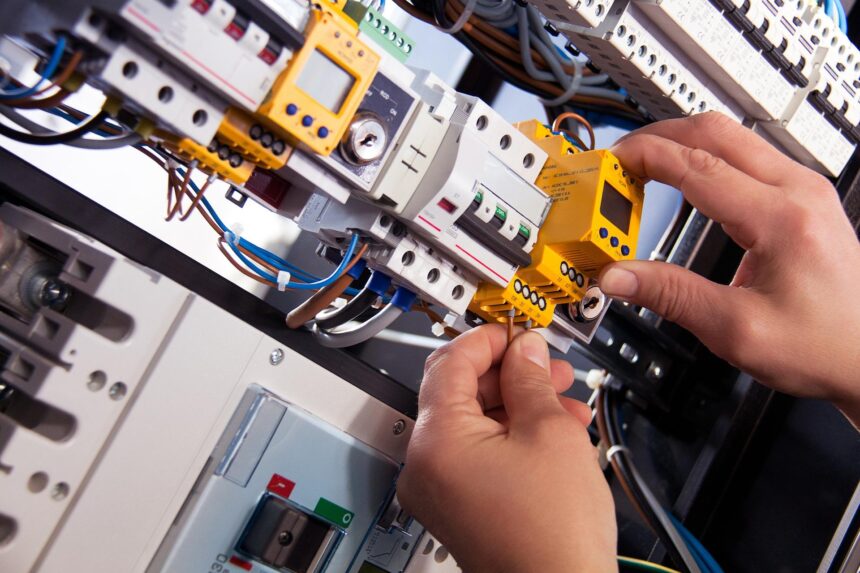In an age of rising energy costs and growing environmental awareness, energy efficiency is more important than ever. Homeowners and businesses alike are seeking ways to reduce energy consumption without compromising comfort or functionality. Energy-efficient electrical systems offer a comprehensive solution, incorporating smart design, advanced technology, and sustainable practices to achieve significant savings and lower environmental impact.
This article breaks down the essential features of energy-efficient electrical systems and how they enhance modern living while benefiting both wallets and the planet.
A Day in the Life of an Energy-Efficient Home
Imagine waking up to a home where every element of the electrical system works in harmony to conserve energy. The lights in your bedroom gradually brighten to mimic sunrise, controlled by a smart system that adjusts to your schedule. As you head to the kitchen, your coffee maker, programmed to start brewing at just the right time, runs on a dedicated, optimized circuit.
This seamless experience is the hallmark of energy-efficient electrical systems, designed to anticipate needs while minimizing waste. At the heart of such systems are several key components that work together to enhance energy performance.
The Building Blocks of Efficiency
1. Smart Technology Integration
Smart devices are a cornerstone of energy efficiency. These technologies actively monitor and adjust energy use to ensure optimal performance.
- Smart Thermostats: These devices learn user preferences and adjust heating or cooling accordingly, saving energy without sacrificing comfort.
- Lighting Systems: Motion sensors and timers ensure lights are only on when needed, while dimmers allow users to customize brightness levels, reducing unnecessary power consumption.
- Connected Appliances: Energy-efficient appliances, like dishwashers and refrigerators, are now equipped with smart features that minimize energy use during peak hours.
Licensed electricians, like those at CSK Electric, play a critical role in integrating smart technologies into residential or commercial setups, ensuring that systems work cohesively.
2. Advanced Wiring and Circuit Design
The way a building’s wiring is structured can significantly impact energy efficiency. Modern systems are designed with both functionality and sustainability in mind.
- Dedicated Circuits: Appliances like washing machines or HVAC systems operate more efficiently on dedicated circuits, avoiding power fluctuations that can lead to energy loss.
- Efficient Load Balancing: Properly designed circuits distribute power evenly, preventing overloading and reducing strain on the electrical system.
- Reduced Transmission Losses: High-quality wiring and short cable runs minimize energy lost as heat during transmission.
3. Renewable Energy Integration
An energy-efficient system often includes components designed to harness renewable energy sources.
- Solar Panels: Photovoltaic cells capture sunlight and convert it into electricity, providing a sustainable alternative to traditional energy sources.
- Battery Storage Systems: These systems store excess energy generated during the day for use at night or during outages, ensuring a consistent and efficient power supply.
While renewable energy systems require professional installation, electricians ensure they are safely integrated into the building’s main electrical framework.
Energy Efficiency in Commercial Spaces
Energy-efficient systems are equally transformative for commercial properties. Businesses can see significant operational savings while meeting sustainability goals.
- Automated Lighting: Offices equipped with daylight sensors automatically adjust lighting levels based on natural light availability, reducing power usage during daylight hours.
- Energy Monitoring Software: Real-time energy tracking allows businesses to identify areas of inefficiency and make targeted improvements.
- Backup Electrical Generators: Even these systems can be optimized to ensure they only activate when absolutely necessary, conserving fuel and reducing emissions.
Commercial construction and renovation electricians specialize in designing scalable systems that grow with the needs of the business, ensuring long-term energy efficiency.
The Role of Modern Fixtures
Swapping out old, energy-hungry fixtures is one of the simplest yet most impactful steps toward creating an energy-efficient system.
LED Lighting
LED bulbs use significantly less energy than incandescent or fluorescent options and last much longer. They’re available in various designs to fit any aesthetic while drastically cutting electricity usage.
Energy-Efficient Fans and Appliances
Ceiling fans with energy-efficient motors and appliances certified by organizations like ENERGY STAR® are essential components of modern systems, offering optimized performance with reduced consumption.
Making the Transition: Tips for Homeowners
Adopting energy-efficient electrical systems can feel overwhelming, but with the right approach, it’s manageable and rewarding.
- Start Small: Begin with simple upgrades like LED bulbs and programmable thermostats.
- Schedule an Assessment: Hire professionals, such as CSK Electric, to evaluate your current system and recommend cost-effective upgrades.
- Invest in Long-Term Solutions: While initial costs for smart technology or solar panels may be higher, the long-term savings on energy bills make these investments worthwhile.
Busting Myths About Energy Efficiency
Despite its benefits, energy efficiency is often surrounded by misconceptions. Let’s dispel a few common myths:
- “Energy-efficient systems are too expensive.” While upfront costs can be higher, the savings on utility bills quickly offset the investment.
- “Smart devices are complicated to use.” Modern interfaces are designed to be user-friendly, and electricians ensure they’re installed and configured correctly.
- “I can’t make my old house energy-efficient.” With expert guidance, even older homes can benefit from upgraded wiring, efficient fixtures, and renewable energy integration.
The Environmental Impact
By consuming less electricity, energy-efficient systems help reduce the demand on power plants, lowering greenhouse gas emissions. Homes and businesses equipped with these systems contribute to a more sustainable future, aligning with global efforts to combat climate change.
The Long-Term Benefits
- Reduced Utility Bills: Consuming less energy directly translates to lower monthly costs.
- Increased Property Value: Homes and businesses with energy-efficient systems are more attractive to buyers and renters.
- Enhanced Comfort: Smart technologies and optimized systems create a more pleasant living or working environment.
- Future-Proofing: With energy costs likely to rise, adopting efficiency measures now ensures stability in the future.
Looking Ahead: The Future of Efficiency
Energy-efficient electrical systems continue to evolve, incorporating cutting-edge technologies like AI-driven energy management and advancements in renewable energy storage. Staying ahead of these trends ensures that homeowners and businesses can maximize their savings and sustainability efforts.
Conclusion
Energy efficiency is not just a trend—it’s the future of electrical systems. By investing in energy-efficient technologies, fixtures, and designs, homeowners and businesses alike can reduce costs, enhance comfort, and contribute to a healthier planet.
Providers like CSK Electric make the transition seamless, offering expert installation and guidance tailored to individual needs. Whether upgrading a single fixture or overhauling an entire system, the benefits of energy efficiency are undeniable, making it a smart choice for today and tomorrow.


